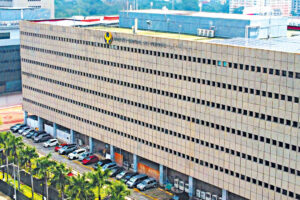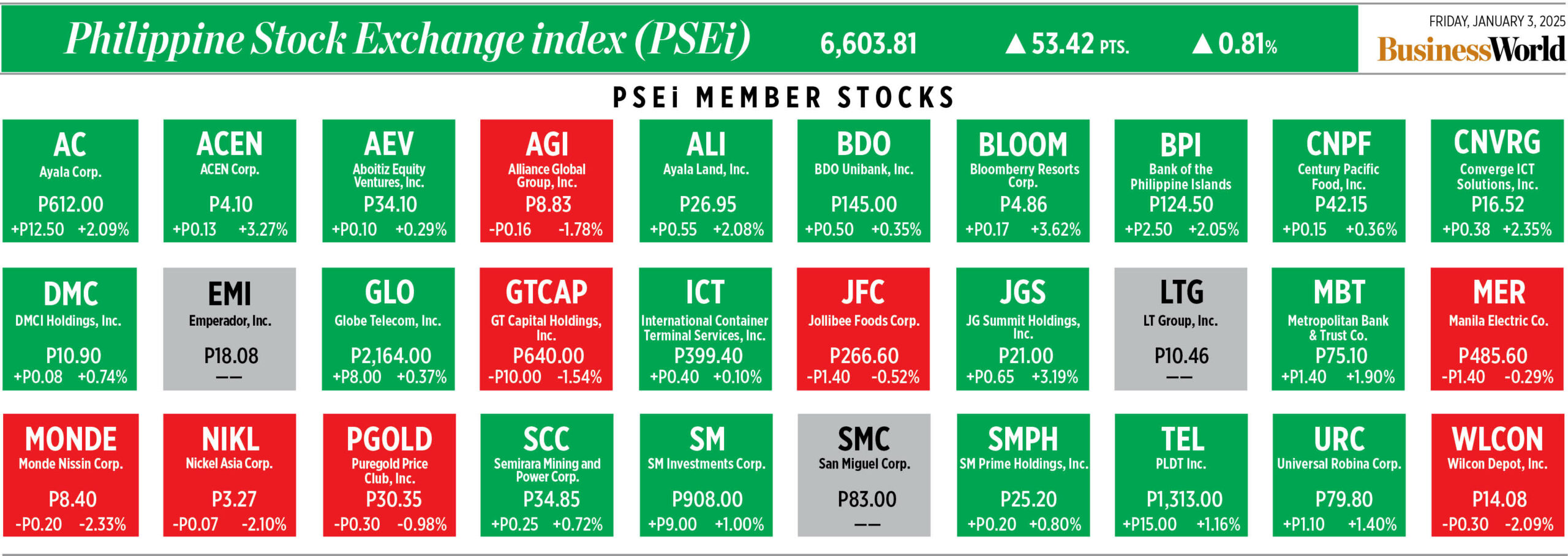
THE PHILIPPINE banking industry’s total assets rose by 9.8% year on year as of end-October, Bangko Sentral ng Pilipinas (BSP) data showed.
Preliminary data showed banks’ combined assets increased to P26.41 trillion as of end-October from P24.04 trillion a year prior.
Month on month, however, total assets inched down by 1.2% from P26.74 trillion as of end-September.
Banks’ assets are mainly supported by deposits, loans, and investments. These include cash and due from banks as well as interbank loans receivable (IBL) and reverse repurchase (RRP), net of allowances for credit losses.
The banking sector’s total loan portfolio inclusive of IBL and RRP jumped by 11.5% to P14.06 trillion as of October from P12.61 trillion a year ago.
Net investments, or financial assets and equity investments in subsidiaries, climbed by 12.1% to P7.84 trillion from P6.99 trillion a year earlier.
On the other hand, cash and due from banks stood at P2.43 trillion as of end-October, down by 10.7% from P2.72 trillion a year prior.
Net real and other properties acquired went up by 7.3% to P112.74 billion from P105.1 billion.
Banks’ other assets jumped by 21.8% to P1.96 trillion at end-October from P1.61 trillion a year earlier.
Meanwhile, the total liabilities of the banking system rose by 9.5% to P23.1 trillion from P21.1 trillion in the year-ago period.
Rizal Commercial Banking Corp. Chief Economist Michael L. Ricafort said the higher asset level as of end-October came on the back of higher loans as the recent reserve requirement ratio (RRR) cut allowed banks to ramp up their lending activities.
“This also reflects the continued growth in banks’ earnings in recent months that also helped in increasing capital and also loanable funds,” he added.
Bank lending grew by 10.6% to P12.5 trillion in October, separate BSP data showed, while the Philippine banking system’s net profit rose by 6.4% to P290 billion in the first nine months of the year.
The central bank slashed the RRR for universal and commercial banks and nonbank financial institutions with quasi-banking functions by 250 basis points (bps) to 7% from 9.5% effective Oct. 25.
On the other hand, Mr. Ricafort said the month-on-month decline in assets may have been due to disruptions caused by the series of typhoons that struck the country during the month.
BSP data showed that the month-on-month drop in banks’ assets was largely due to a decline in the sector’s total loan portfolio to P14.062 trillion as of October from P14.42 trillion as of September.
“The decline in the total loan portfolio came mostly from a 62% drop in RRPs with the BSP, likely due to banks pulling out their funds following the interest rate cuts,” AP Securities, Inc. Research Head Alfred Benjamin R. Garcia said..
The BSP has cut borrowing costs by 50 bps since it began its easing cycle in August, bringing the policy rate to 6%. — Luisa Maria Jacinta C. Jocson








Leave a Comment